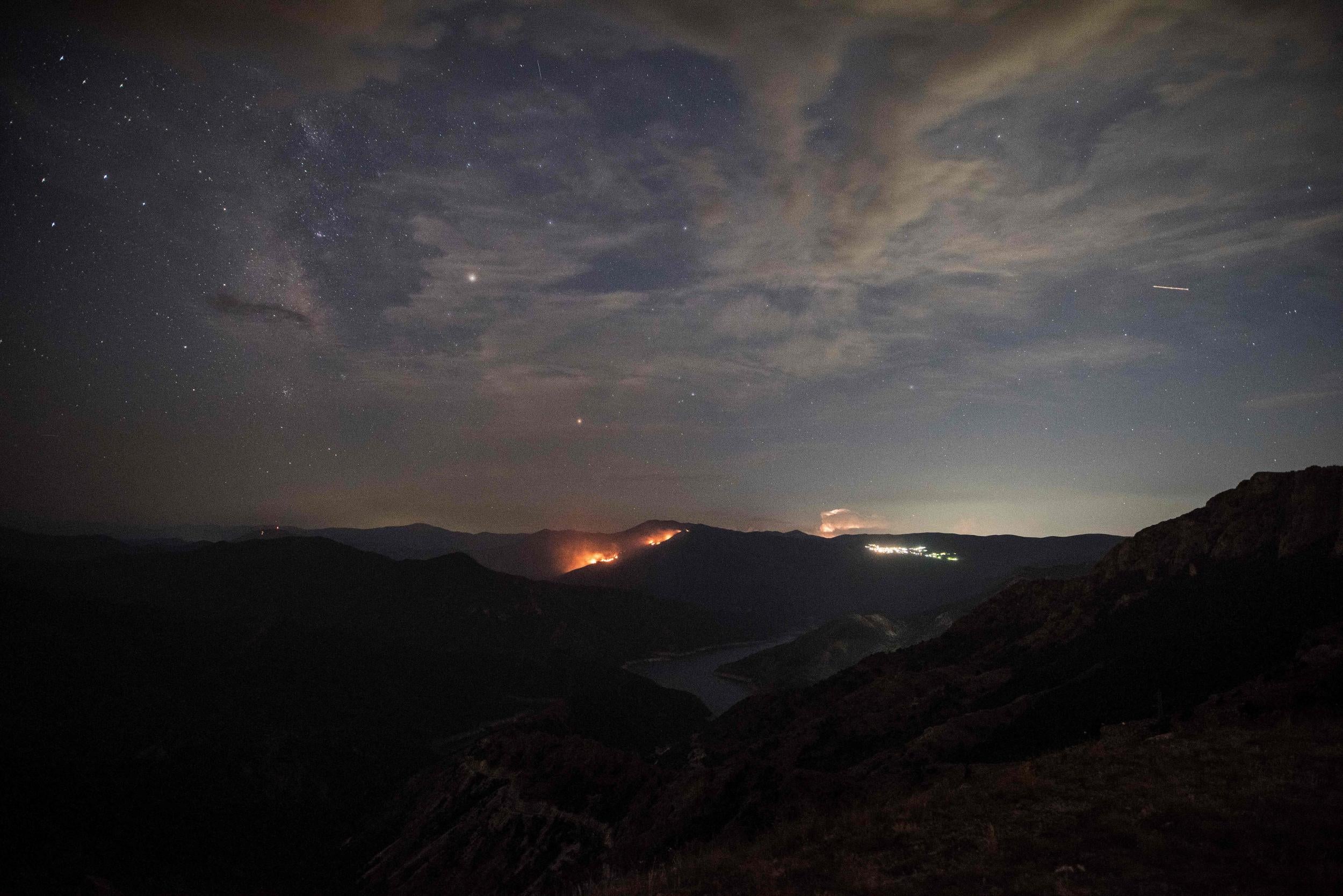Perseid meteor shower lights up the night sky
Stargazers able to wish upon a myriad of shooting stars

The Perseid meteor shower lit up the night sky with shooting stars as the Earth hurtled through sparkling debris shed by the tail of the comet, Swift-Turtle.
Stargazers across the world were able to witness the light show, which was visible in most parts of the UK on Saturday evening and Sunday morning
Experts had warned that a three-quarters-full moon might obscure the celestial delight, but astronomers and casual stargazers alike were not left disappointed with numerous sightings from around the country.
The Swift-Tuttle comet orbits the sun every 135 years but at almost 90 degrees to the orbit of the Earth.
Each year the Earth travels through the tail of dust and ice left behind by the comet.
The meteors themselves are usually no larger than a grain of sand, but when they hit the Earth’s atmosphere they are travelling at over 100,000mph or 60 kilometres per second.
As they burn up they can appear green, white and orange.
The Perseids are so named because they appear to originate from the constellation Perseus, in the north east of the night sky.
Observers were advised to look in the opposite direction in order to best observe the space rubble flying for longer, away from the bright light of the waning gibbous moon.
Robin Scagell, vice president of the Society for Popular Astronomy, told the Press Association ahead of the evening spectacle: “There was one rogue report that said it was going to be the most impressive display for 96 years or some other rubbish.
“But the numbers are going to be quite good. We can look forward to a decent display, even though they aren't going to be raining down from the sky.
“The Perseids can be very bright and often quite spectacular. Some meteor showers are slow, but we are moving into the Perseid stream so they are coming at us quite swiftly.
“I think under good conditions you might see one or two a minute, probably more towards Sunday morning rather than Saturday.”
Join our commenting forum
Join thought-provoking conversations, follow other Independent readers and see their replies
Comments
Bookmark popover
Removed from bookmarks